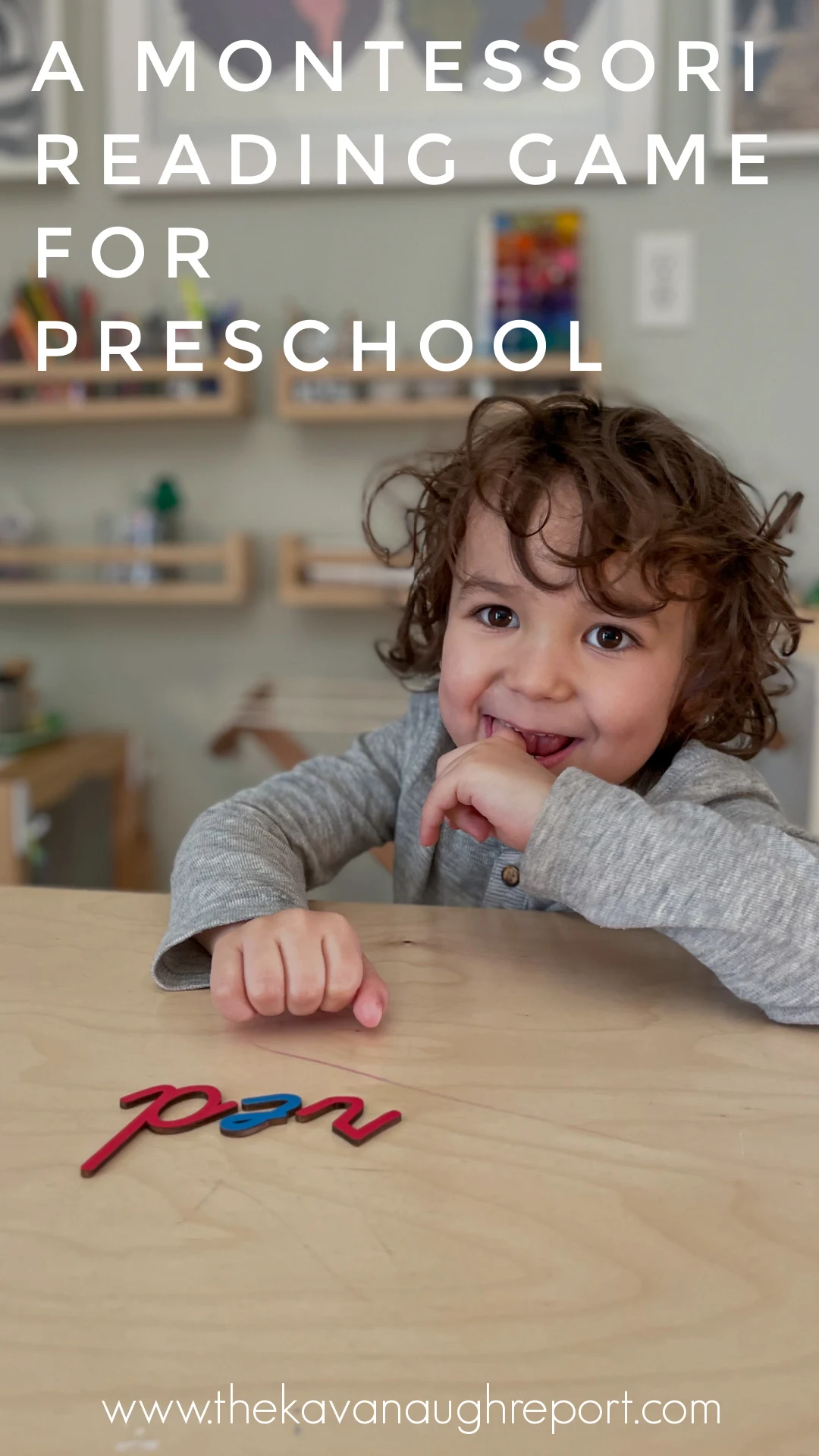It's hard to believe but somehow another one of my kids is on the cusp of reading! Part of me is so excited for this new and exciting phase in Gus' life, but also...where did my baby go?! At 5-years-old, Gus is in his second year in Primary or Montessori children's house. Both in school and at home, he's had opportunities to work with Montessori materials that have helped him learn letter sounds and their symbols. Over the last few months, he has been putting this work together and without really knowing it has started to read!
That's the beauty of the Montessori approach to language, that so much of it just feels like play. And, why not continue that play here at home?
A Montessori Reading Game for Preschoolers
Instead of drilling words or reading large chunks of text - both of which are likely to hurt his interest in reading or make him lose confidence - we play games! One of my favorite games to play with this age of kid is the "read my mind game." It's silly and almost magical for them to suddenly realize that words can help to relay information from one person to another without ever saying a word.
What You Need:
You can either play with some objects (we tend to use language objects in this case, but it can be anything) or with anything to support you. I tend to use objects at first as it gives an additional hint to newer reader/writers. Then, as they get more proficient we play without any additional hints.
You also need either a moveable alphabet or something to write with. We do it both ways here depending on the day. Sometimes I want to spark a little more use of the moveable alphabet and will use that, sometimes I just grab whatever. Really doesn't make that big of a difference at home.
How to Play:
Keep it really fun and silly while you play. This isn't about necessarily guessing the right word, but practicing while connecting in a fun way. Steps:
- Ask and invite. I say something like "Do you want to play a game? I'm wondering if you can figure out what I'm thinking about? Do you think you can READ MY MIND!?!" Then I might encourage them to go ahead and see if they can guess. Usually that's a no.
- Give a Hint. Once they can't guess, I ask "Can I give you a hint?!" Then I would write (with either the moveable alphabet, or utensil) the first sound of the item I'm thinking about. I do this part slowly so they can start to pull together the sound. Then I slowly add more letters until they have pulled the word together and shout out the answer.
- Excitement. "WOAH?! You did it! How did you know what I was thinking?!" Again, make this silly and about connecting. "Would you like to try another?!"
- Give them a Try. Eventually you can ask if you can guess what they are thinking and have them spell a word for you.
And, that's it! It's super simple, quick and really fun. Keep in mind that words should be really simple and already known to the child. I stick with CVC words for Gus at this point. Eventually once he is more comfortable with phonograms we might switch up the types of words I'm choosing.
If he wasn't able to guess a word I would help to blend the sounds together for him. It would also be a sign to me that he might need a little more work with the sounds on their own before using them to make words. If there was consistently an issue, I would take a step back and play one of these games to reinforce the individual letter sounds:
Most importantly remember that this is supposed to be fun. This should never feel like work for you or your child. What kinds of ways do you practice very early reading skills?





